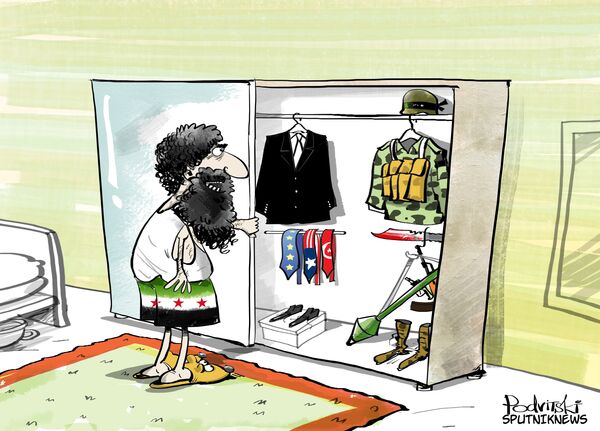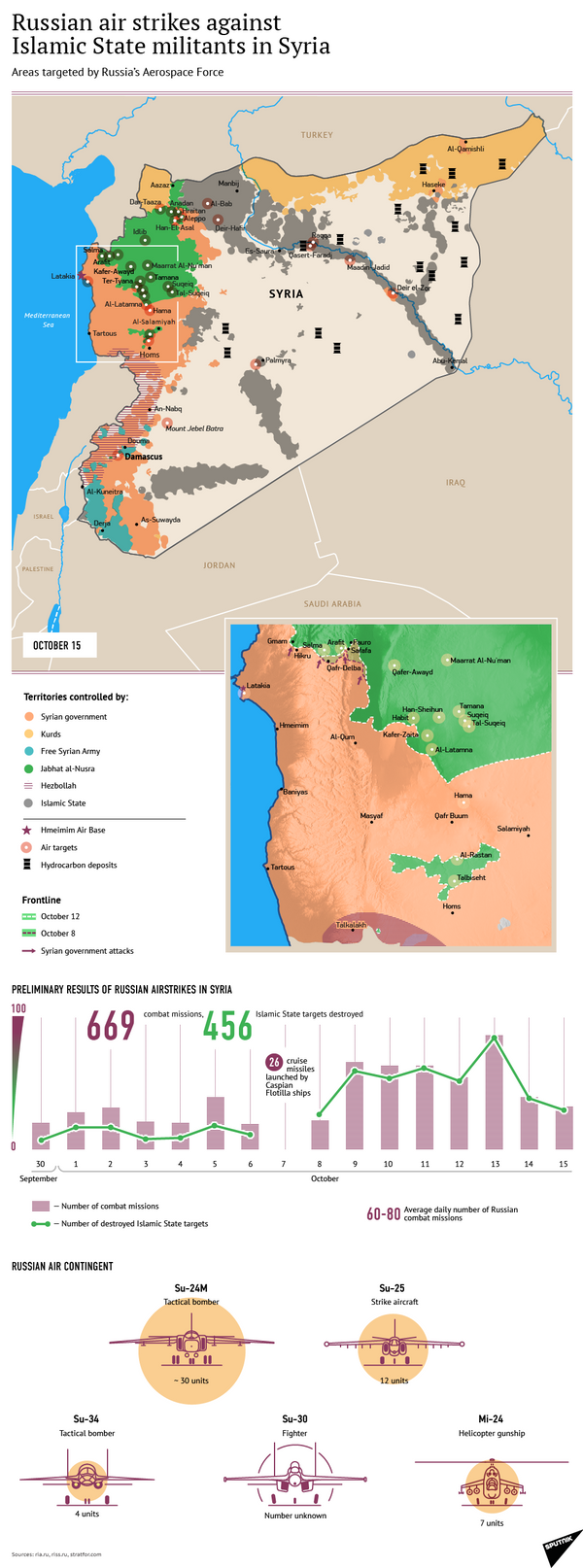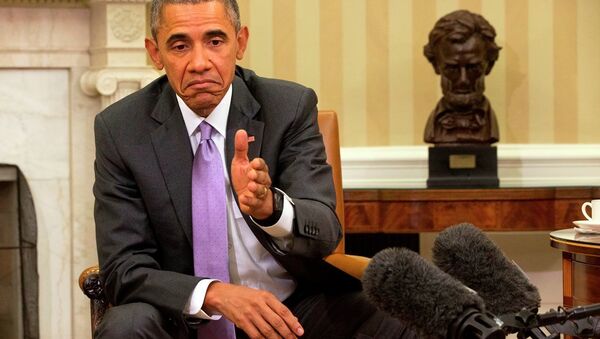"The Obama administration's pants just dropped a few more inches below its knees. It's now perfectly evident that its default position is non-cooperation with Russia on any question and in any circumstance. It's not because of a Russia policy, a Syria policy or even a foreign policy of any kind. It's the plot line in a black hats-white hats Hollywood Western; even old friends aren't sitting still for it," Smith observed, referring to Jordan.
Amman, one of Washington's age-old allies in the Middle East and a member of the US-led anti-ISIL coalition, recently agreed to coordinate its counterterrorism activities with Russia through an information sharing center, which will soon be established in the Jordanian capital.

It is fair to assume that other stakeholders, who have a vested interest in tackling radical groups before extremism spreads beyond the Middle East, will likely soon follow. But Smith doubts that the United States will be among them.
"At this point, the more Russia reveals of its thinking on Syria, the more cringe making it is to watch the Obama administration cling to the line that if it's Russia's idea it's a bad idea," he noted.
On Saturday, Foreign Minister Sergei Lavrov voiced two important points quite in line with Washington's thinking on Syria. Firstly, Russia's top diplomat mentioned that Syria should hold presidential and parliamentary elections in 2016. Secondly, he reiterated that Moscow was ready to provide aerial support to and cooperate with any patriotic opposition group in the war-torn country, including the Free Syrian Army.
"At this early moment, the offer to support the FSA appears to be more of a gesture to Washington. Or to put it another way, part of Moscow's apparent determination to call Washington's bluff," Smith asserted.
The bluffing, in Smith's opinion, involves not telling where rebels affiliated with the Free Syrian Army are located. Moscow has grounds to believe that these groups are practically non-existent. Syrians familiar with the situation on the ground, as well as local experts and officials have long confirmed this stance.

But the issue of Syria in the bilateral relations between Moscow and Washington goes far beyond the Free Syrian Army or even elections. The Obama administration could miss an opportunity to lay a foundation for lasting relations between the two countries.
"The Russian leader ranked the Syria crisis as the third significant chance to build a wide-ranging strategic partnership between Russia and the West – the first two being the Soviet Union's collapse and the post-September 11 fight against Islamic extremism. Lamenting those failures, he said, 'We should not miss the chance again,'" Smith stated.




